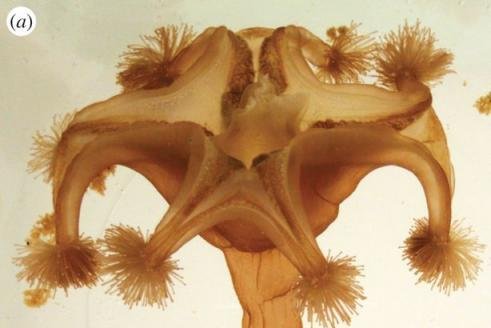MISTAKEN POINT, Newfoundland, Aug. 27 (UPI) -- Scientists say a fossil unearthed in Newfoundland is the earliest evidence of an animal with muscles -- proof that complex animals had begun exploring the world earlier than previously thought.
Researchers from the University of Cambridge, in the United Kingdom, worked with paleontologists from the University of Oxford and the Memorial University of Newfoundland in excising, naming and studying the remarkable 560-million-year-old fossil. The scientists dubbed the waving, four-pronged blob of muscle Haootia quadriformis, and determined that it was a predecessor of the group of animals known as Cnidarians, which includes modern jellyfish, corals and sea anemones.















